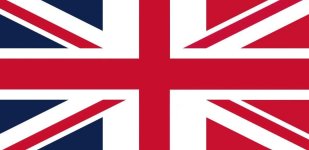rosa
Well-known member
Divorced, Beheaded, Died, Divorced, Beheaded, Survived
1969 - 1974: Fmr. Vice Pres. Richard Nixon (Republican)
1968 (with Spiro Agnew) def. OTL
1972 (with Spiro Agnew) def. OTL
• 1974, resignation of Richard Nixon
1974 - 1975: Vice Pres. Gerald Ford (Republican)
• 1975, assassination of Gerald Ford by Squeaky Fromme
1975 - 1978: Vice Pres. Nelson Rockefeller (Republican)
1976 (with Ronald Reagan) def. Gov. George Wallace (Democratic), Fmr. Senator Eugene McCarthy (Independent)
• 1978, death of Nelson Rockefeller from a heart attack
1979 - 1981: Vice Pres. Ronald Reagan (Republican)
1981 - 1981: Secretary Alexander Haig (Republican)
1980, Activist Michael Harrington and Gov. Dick Celeste (Democratic) def. Pres. Ronald Reagan (Republican)
• 1981 Coup D'etat, overturning of the 1980 election
• 1981, impeachment, removal, and criminal trial of Alexander Haig. Sentenced to death for various forms of treason, including the 1981 Coup and the Manson Family False Flag Scandal
1981 - 19XX: Activist Michael Harrington (Democratic)
1984 (with Dick Celeste) def. Senator Phil Crane (Republican), Senator Donald Rumsfeld (Independent)
1969 - 1974: Fmr. Vice Pres. Richard Nixon (Republican)
1968 (with Spiro Agnew) def. OTL
1972 (with Spiro Agnew) def. OTL
• 1974, resignation of Richard Nixon
1974 - 1975: Vice Pres. Gerald Ford (Republican)
• 1975, assassination of Gerald Ford by Squeaky Fromme
1975 - 1978: Vice Pres. Nelson Rockefeller (Republican)
1976 (with Ronald Reagan) def. Gov. George Wallace (Democratic), Fmr. Senator Eugene McCarthy (Independent)
• 1978, death of Nelson Rockefeller from a heart attack
1979 - 1981: Vice Pres. Ronald Reagan (Republican)
1981 - 1981: Secretary Alexander Haig (Republican)
1980, Activist Michael Harrington and Gov. Dick Celeste (Democratic) def. Pres. Ronald Reagan (Republican)
• 1981 Coup D'etat, overturning of the 1980 election
• 1981, impeachment, removal, and criminal trial of Alexander Haig. Sentenced to death for various forms of treason, including the 1981 Coup and the Manson Family False Flag Scandal
1981 - 19XX: Activist Michael Harrington (Democratic)
1984 (with Dick Celeste) def. Senator Phil Crane (Republican), Senator Donald Rumsfeld (Independent)



